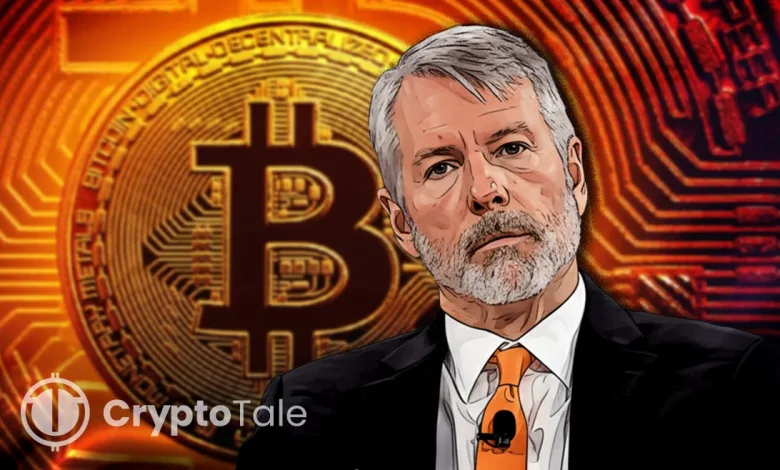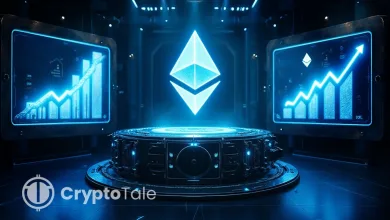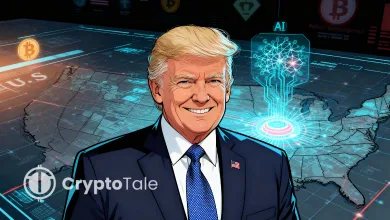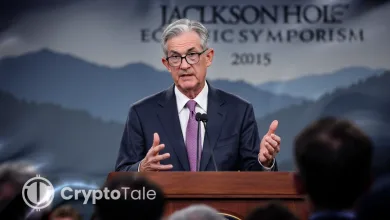Saylor Reveals Bitcoin Truths Shaping a New Global Order

- Saylor presents Bitcoin as a force that forms a path for economic strength and stability.
- His truths describe Bitcoin as a rising system that shields value against monetary decline.
- Analysts warn that such ideas could alter global power as financial models grow weaker.
When Michael Saylor released his “21 Truths of Bitcoin,” he presented a sweeping framework that recast Bitcoin as more than a currency or digital asset. He described a structure that positions Bitcoin as a global defense mechanism for economic stability. The manifesto quickly moved through analyst communities as they tracked its possible effects on money, power, and the global financial structure.
Bitcoin as Identity and Infrastructure
Saylor listed Bitcoin as an ideology, a protocol, an asset, and a network. He then added descriptions such as “immaculate,” “ethical,” “commodity,” “digital commodity,” and “digital scarcity.” Each term stayed grounded in his view that Bitcoin holds both technical and existential qualities.
He described Bitcoin as “perfect money,” and he linked the concept to digital scarcity. He contrasted it with fiat currencies that lose purchasing power due to inflation and supply changes. He stated that Bitcoin preserves value with fixed scarcity and transparent rules.
Saylor also expanded the argument with cosmic language. He described Bitcoin as a digital energy network and an emerging star system. He further presented it as a digital defense system. He argued that this structure protects individuals and institutions from the decay he associates with fiat money.
The Expanding Cosmic Descriptions
Saylor’s list included terms that required strong belief. He named Bitcoin “immaculate,” “ethical,” “digital scarcity,” “perfect money,” and “immortal.” These labels drew from ideology and broad cultural narratives. Some descriptions resembled references to mythology or pop culture.
He also identified Bitcoin as a digital economic system. This claim came from his view that the global economy could eventually run on the Bitcoin network. He called Bitcoin a digital defense system once more, and he connected it to comments from Elon Musk about cybercriminals failing to breach the Bitcoin protocol. He pointed to the network’s long-term security record.
These metaphors extended his case for Bitcoin’s structural role. They placed Bitcoin within a framework that stretched far beyond financial markets.
Related: Michael Saylor Denies 47k BTC Sale Talk, Hints at “Pleasantly Surprising” New Buys
A Shifting Power Matrix
Supporters treated this as a turning point. They argued that Bitcoin no longer appeared as a speculative asset. They viewed it as a universal store of value and a neutral base that exists outside government intervention and currency erosion. Saylor referred to Bitcoin as “the apex property of the human race.”
Holding Bitcoin became, in his words, similar to maintaining a vault of code rather than gold. He described it as protection from political decisions that could reduce value. This idea raised a critical question: could Bitcoin become a core system that replaces existing financial foundations?
Analysts observed possible changes in global power. A world that adopted Bitcoin as a reserve layer could weaken central banks and shift control away from governments that depend on inflation models. They warned that capital could move toward decentralized wealth structures. Furthermore, they stated that governments may face pressure if Bitcoin gains deeper global traction.
Saylor placed attention on rising inflation, currency losses, and debt crises worldwide. Analysts noted that these conditions may push more actors toward his perspective. They saw a scenario where Bitcoin becomes a shared defense shield for economies that seek stability.




